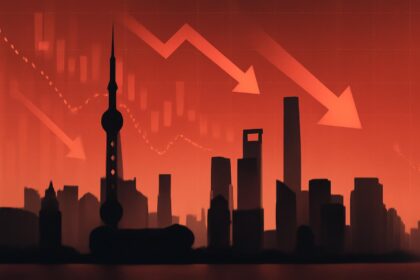Europe’s Economic Outlook
The latest insights from the European Commission's Economic Outlook reveal a gradual recovery in the European economy. After a phase of stagnation, growth is modestly picking up, with a 0.3% increase in the first quarter of 2024. Although this is still below potential, it's a sign of improvement. A further growth of 1.0% in 2024 and 1.6% in 2025 is anticipated. Meanwhile, inflation is expected to decrease significantly—from 6.4% in 2023 to 2.7% in 2024 and 2.2% in 2025. This cooling inflation could result in the European Central Bank reducing interest rates gradually.
Private consumption is anticipated to grow, fueled by wage and employment gains. This rise in consumer spending is crucial for economic health as it indicates stronger household confidence and purchasing power. Moreover, investment activities are likely to see slow growth initially in 2024, accelerating in 2025, supported by governmental infrastructure projects.
European exports are set to expand due to a resurgence in global trade and a robust recovery in China. The EU is expected to see its government deficit decline, driven by the withdrawal of energy-related measures and a general economic upswing.
Europe’s Market: Undervalued and Overlooked
Investment manager Nicholas Hyett expresses optimism about Europe, particularly the UK, which he considers undervalued, trading 40% below the US market. He highlights the potential in consumer goods and industrials, sectors often overlooked but ready for growth.
Despite concerns over election uncertainties in the US and Europe, Hyett believes these are already factored into the market. He expects interest rate cuts in the latter half of 2024, contingent on economic conditions. If inflation continues its projected descent, this could prompt more aggressive rate cuts.
Shell (NYSE:SHEL): A Closer Look
Shell stands out as a potential investment opportunity within Europe. As a leading multinational in the oil and gas industry, Shell is making strategic moves toward cleaner energy. Despite pausing certain biofuel projects, it is intensifying investments in hydrocarbons and LNG (Liquefied Natural Gas).
A notable investment is in the Surat Gas Project in Australia through its joint venture with PetroChina. This project highlights Shell's focus on expanding its secure energy offerings, providing a lower-emission alternative to coal. With plans for 450 production wells and significant infrastructure developments, first gas is expected by 2026.
Financially, Shell's stock is appealing. It trades at 8.47 times its earnings, a substantial 27.16% discount compared to the sector median. This valuation, coupled with a consensus Buy rating from analysts, suggests a potential upside of 20.19%.
Shell ranks as a top consideration for those looking into undervalued European stocks, driven by its strategic investments and market position.













